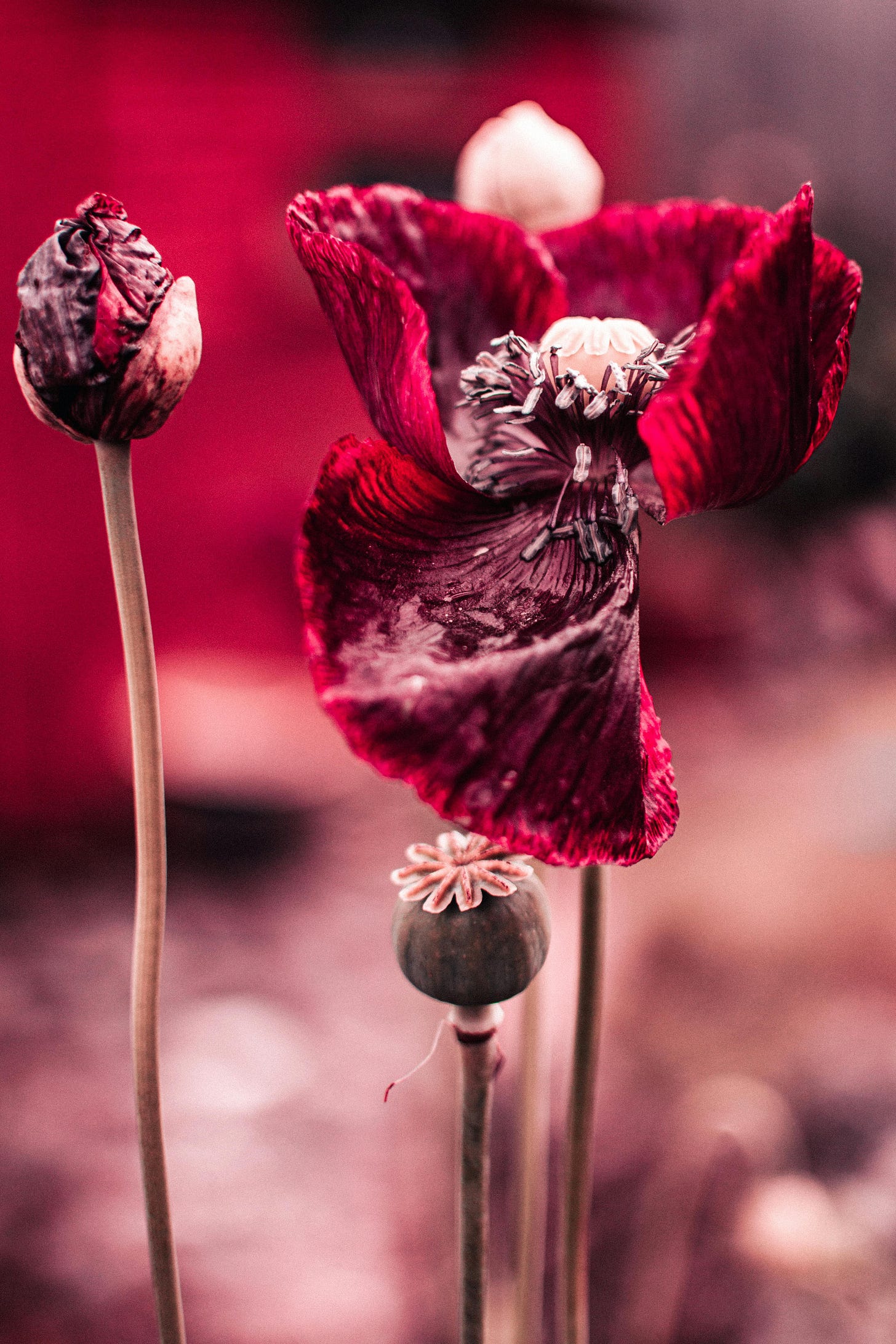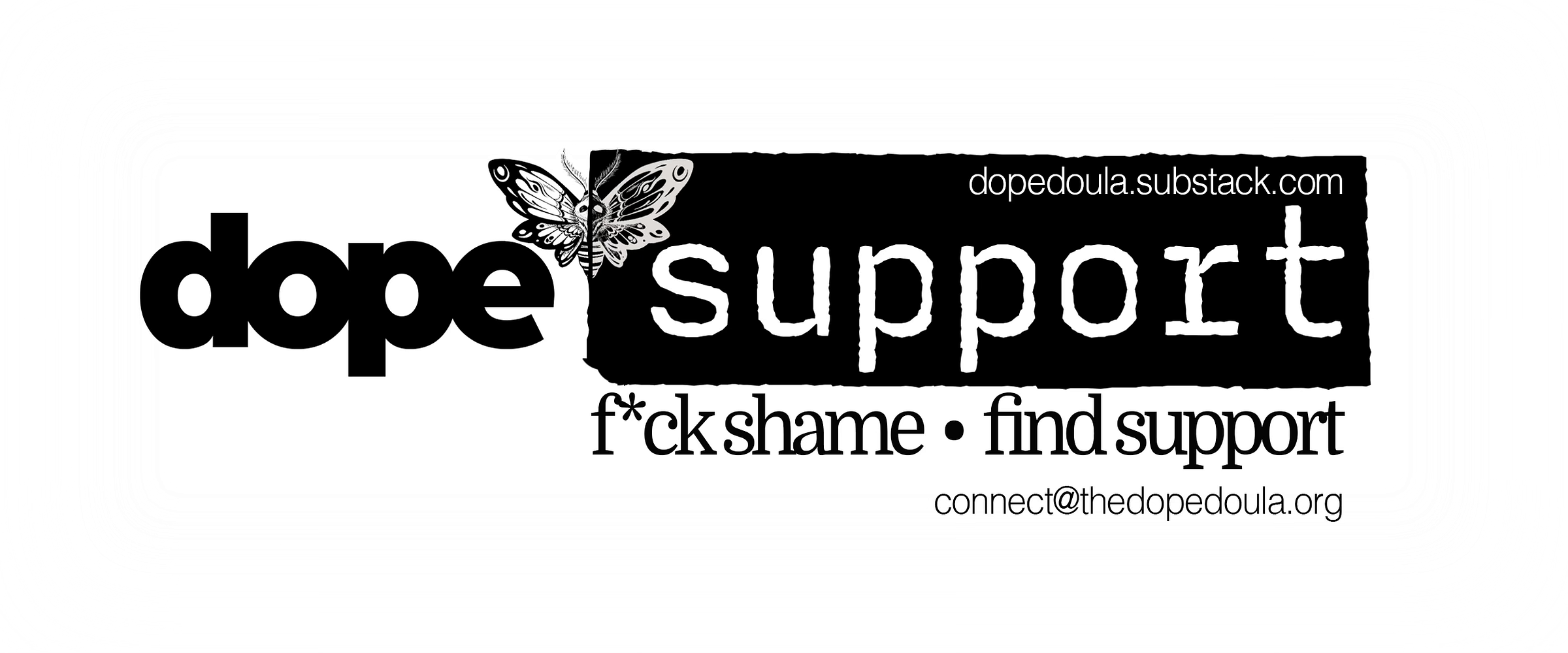All Drug Use is Medicine
Where is the line between “medicine” and “just getting high”?
When we think of medicine, we often picture a neatly packaged pill bottle or a carefully measured spoonful of syrup prescribed to treat, soothe, or stabilise health issues. In recent years, there has been a cultural shift towards recognising the medicinal properties of psychedelics, expanding this definition to include substances like Ayahuasca, psilocybin mushrooms, mescaline, and others. However, when the discussion shifts to other illicit drugs, the idea that all drug use can be viewed as medicine becomes more provocative.
I invite you to read this essay with an open mind and consider the perspective that all drug use is an act of intention.
Some may react to this notion defensively, arguing that certain drugs, such as psychedelics, are inherently superior or less harmful than others. For instance, it is often said, “Psychedelics aren’t addictive.” Was that not the same claim made about OxyContin in the 1990s? And how might that be reconciled with the experience of a friend who lost his job, moved back into his mother’s house and alienated most of his social circle after a series of questionable acts to fund what we now jokingly refer to as his “time-share in the DMT realm”?
The question of where to draw the line between medicating and 'just getting high' is redundant. It distracts us from the real issue and reinforces outdated moral hierarchies that classify substances and their users into acceptable and unacceptable categories. By concentrating on the intent and purpose behind drug use, we can uncover deeper insights into why people turn to substances and how those substances may serve them.
All drug use, regardless of whether it is sanctioned by a prescription or sourced from the illicit market, serves a purpose. Some individuals may use cannabis to help regulate their nervous systems, opioids to numb physical or emotional pain, or stimulants to increase focus, performance, and energy. Alcohol is often consumed to reduce inhibitions in social situations, while MDMA might be taken to enhance connection or creativity.
Even in cases of substance use disorders, the underlying motivations remain meaningful. Substance use is frequently an attempt, conscious or unconscious, to regulate, escape, cope, or connect. Acknowledging this intention does not excuse harmful behaviours or negate the associated risks, but it does challenge the stigma that often isolates users and hinders effective interventions.
Psychedelics, in particular, have been romanticised as inherently safe or superior. While it is true that they are generally non-addictive in a physiological sense, they are not without risks—psychological, social, or cultural. Retraumatisation during ceremonies, unresolved emotional upheavals, and disconnection from reality are all documented risks.
Additionally, the rising global demand for psychedelic ceremonies has placed enormous pressure on Indigenous traditions and ecosystems. Tribes in the Amazon have pleaded with the world to stop appropriating their cultural and spiritual practices, citing over-harvesting of sacred plants like Banisteriopsis caapi (Ayahuasca) and in West Africa, the threat of extinction looming over iboga is devastating to Bwiti cultural heritage and environment. These harms may not stem directly from the substances themselves, but they highlight interpersonal, ecological, and cultural risks of an unchecked 'medicine' narrative.
Would you consider shifting your perspective and the conversation away from judgment and towards curiosity? Instead of asking, “Why can’t they just stop?” one might ask, “What are they seeking, and how else might they achieve it?”
Move beyond the imagined distinctions between good and bad drugs and create space for a deeper, more compassionate understanding of substance use. Behind every puff, pill, shot, and sip is a person seeking what we all want: to feel better, to feel whole, to feel free. Perhaps the substance is not the enemy—it is a means to an end.
💌 Support This Work
If what I write helps you survive, recover, or feel slightly less alone... consider donating. I can’t accept Substack subscriptions (thanks, global capitalism), but you can support me via YouPay:
👉 Donate to The Dope Doula on YouPay
Your donation helps me stay housed, care for my child, and continue developing a radical recovery protocol I believe could change the game for long-term meth users. It’s literally how I stay alive and keep writing this.
We rise by lifting each other in the middle of the mess.
Dope Support is a biweekly online gathering for people navigating substance use, recovery, harm reduction, or just the weirdness of staying alive. Our core values are empathy, autonomy, and mutual respect. We don’t enforce abstinence, push advice, or judge worth.
We don’t fix or diagnose. Instead, we offer a brave space for honesty, vulnerability, and community. Your story is yours to share—or not. We respect your boundaries, triggers, and choices.
Click below to register and receive the Zoom link.
You’re welcome here.








Why can’t this be mandatory reading? I absolutely detest the way the US sees everything as black or white. It’s infuriatingly heartbreaking. If more people knew the stuff you are teaching compassion could spread like wildfire. And where there is compassion there is healing. The judgement only perpetuates the pain and the cycle and the detachment. Thank you for everything you put into your work… I can’t even imagine the hours of research and writing.. not to mention the biggest part.. the experience. You are invaluable 🩶
Absolutely essential perspective, beautifully distilled. Thanks for writing💜👊🏽